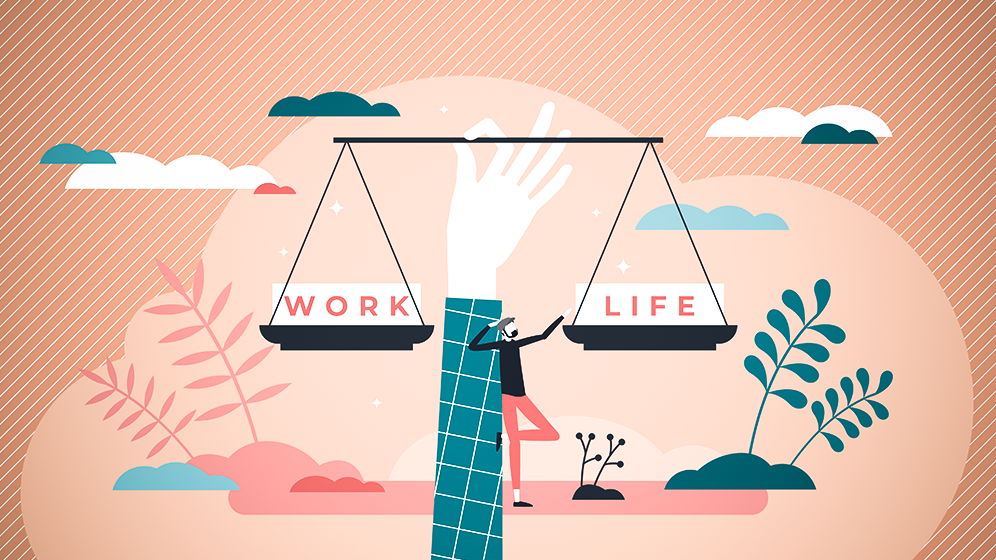Jeff Bezos said when asked about work life balance that “It actually is a circle, not a balance.”
Have you also realized how much being happy at work impacted your energy at home and how being happy at home impacted the quality of your work? I have, and I wanted to share my observations on the work-life balance culture that exists on both sides of the Atlantic.
A little about me: I was born in Armenia, grew up in Paris, lived two years in Moscow, five years in Zurich and recently relocated internationally to New York from Zurich for a work promotion. Since December 1st I have lived and worked in Manhattan.
I have worked and interned in 5 different companies, two French, one German, one Russian, and one Swiss (the Swiss headquarter and the NY branch) in 3 different countries: France, Switzerland and more recently the USA.
I have always loved working and earning money, my former managers in Paris used to call me a “workaholic” and I have always been intrigued by the “hustlers” and their work ethics.
The purpose of this article is not by any means to criticize or to outshine any country but to simply analyze and expose my view on all the countries, companies and different work cultures I have encountered. I will try to use my background in economics and statistics as much as possible to give you interesting numbers to illustrate the ideas.
Work Life Balance in Nordic countries and more specifically in Switzerland is an important topic. My first week as an intern in the Swiss company, my manager set up a 1:1 meeting the day after I stayed until 9 PM at work to finish a presentation to ask me if I was ok. This is something that has never happened to me before in France where the work culture promotes staying late and working longer hours.
Later in my career I have been told that there are two reasons people stay late at work: either they are not efficient, or they have too much workload which means it is not dispatched properly in the team by the manager which ultimately means that the manager is not doing a good job.
This two-sided view made me curious, and I wanted to understand how the world’s most competitive country (per the Institute for Management Development ranking in 2021) can have that ranking while being so cautious on “work life balance.”
My findings are below:
Swiss have a work ethic and way of living based on trust. They work efficiently: they arrive at 7AM in the office, work until noon, take a one-hour break for lunch (very important to get away from the desk and clear their mind), work straight until 5 or 6PM and go back home to their families.
They discuss mostly relevant topics and do not do much unnecessary “small talk” because time is money and they don’t have time to waste.
They prioritize quality over quantity when often in the USA it’s the opposite: better to do more with lower quality.
They are extremely organized, family orientated and healthy. They live and promote the famous moto “Mens sana in corpore sano”.
I used to rent a room from a 69-year-old Swiss Lady that was fitter and healthier than me. During summer she was swimming in lake Zurich, hiking the Rigi mountain in autumn and fall, and skiing during winter.
Swiss do not do much “drama”, keep personal and professional life separate and they only occasionally join afterwork drinks for bonding with colleagues. This attitude might make them seem cold to non-Swiss people but somehow, I felt extremely connected to and inspired by them. French people, on the other hand, can smile and say the best things to you at work and still criticize you behind your back.
France and the USA have similar patterns in the corporate world, they both promote longer working hours, “small talks” are essential during working hours, office “dramas” are common, bonding with the teammates and manager in a bar after work is a weekly ritual. But are those the keys to being more productive and climbing the corporate ladder faster?
To break the glass ceiling and get promoted, these three countries have different approaches. France favors diplomas over skills, USA favors relationships, network and soft skills over real skills while Switzerland does not care about your diplomas if you do a great job (to the extent of not being a toxic colleague obviously).
To illustrate my above views: according to the OECD better life index, the percentage of people working 50 hours or more a week on average is 7,7% in France, 10,4% in the USA compared to 0,4% in Switzerland.
And yet, according to the ILOSTAT (the international labor organization statistics), the countries that were ranked in 2023 with the highest labor productivity are: the Nordics with Luxembourg being the first one and Switzerland the 7th while the USA is 13th and France 16th.
The subject of working longer hours and being productive have been studied many times by economists and most of them always found that the latter does not correlate with the first. In a study from Stanford university, economics professor John Pencavel found that “productivity per hour declines sharply when a person works more than 50 hours a week. After 55 hours, productivity drops so much that putting in any more hours would be pointless.”
Obviously, every person is different, and some may be more productive when working longer hours and some not. Those are general statistics based on trends and averages.
To conclude, I believe that work life balance comes from having caring people around you that reminds you about life’s priorities and having a job that might not always make you happy but allows you to become independent financially. I might change my mind later in my life but as we say in France only fools never change their minds.
Contributing Author: Martine Dupont
